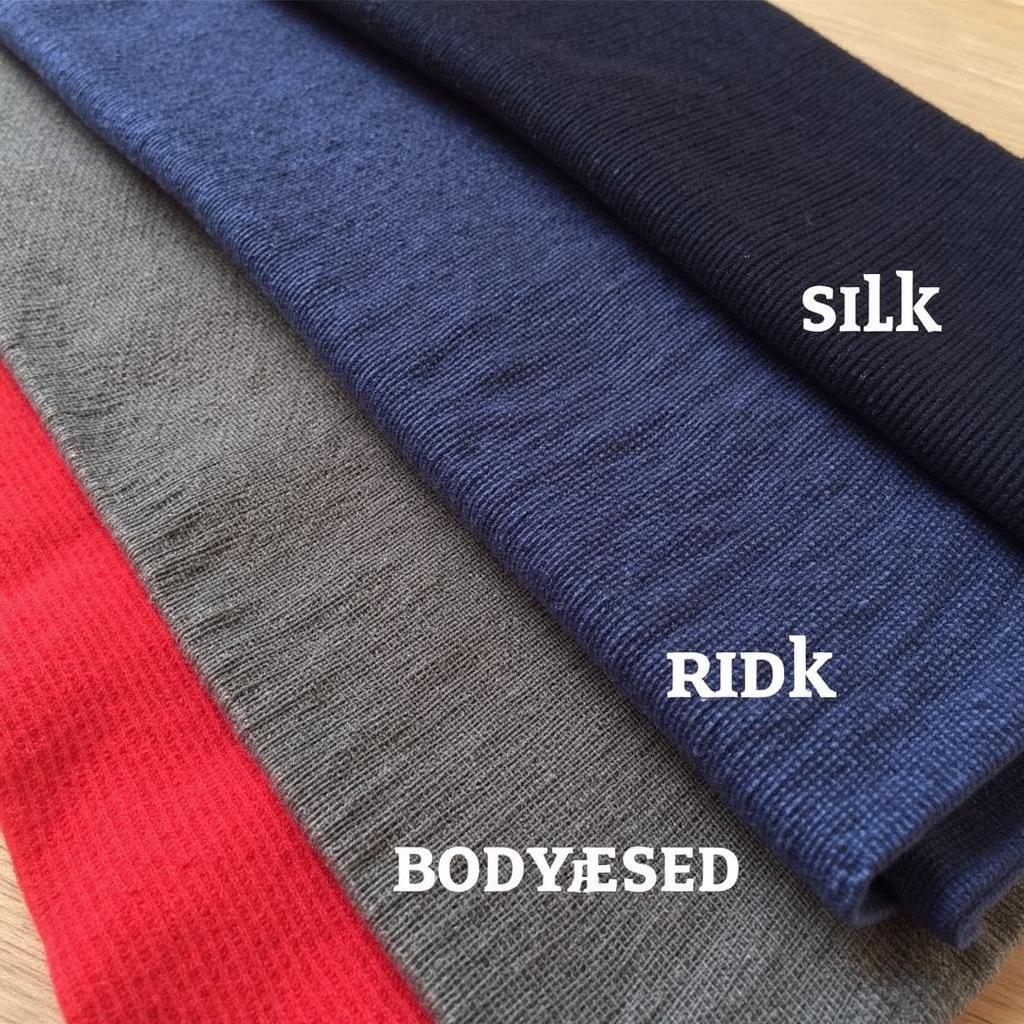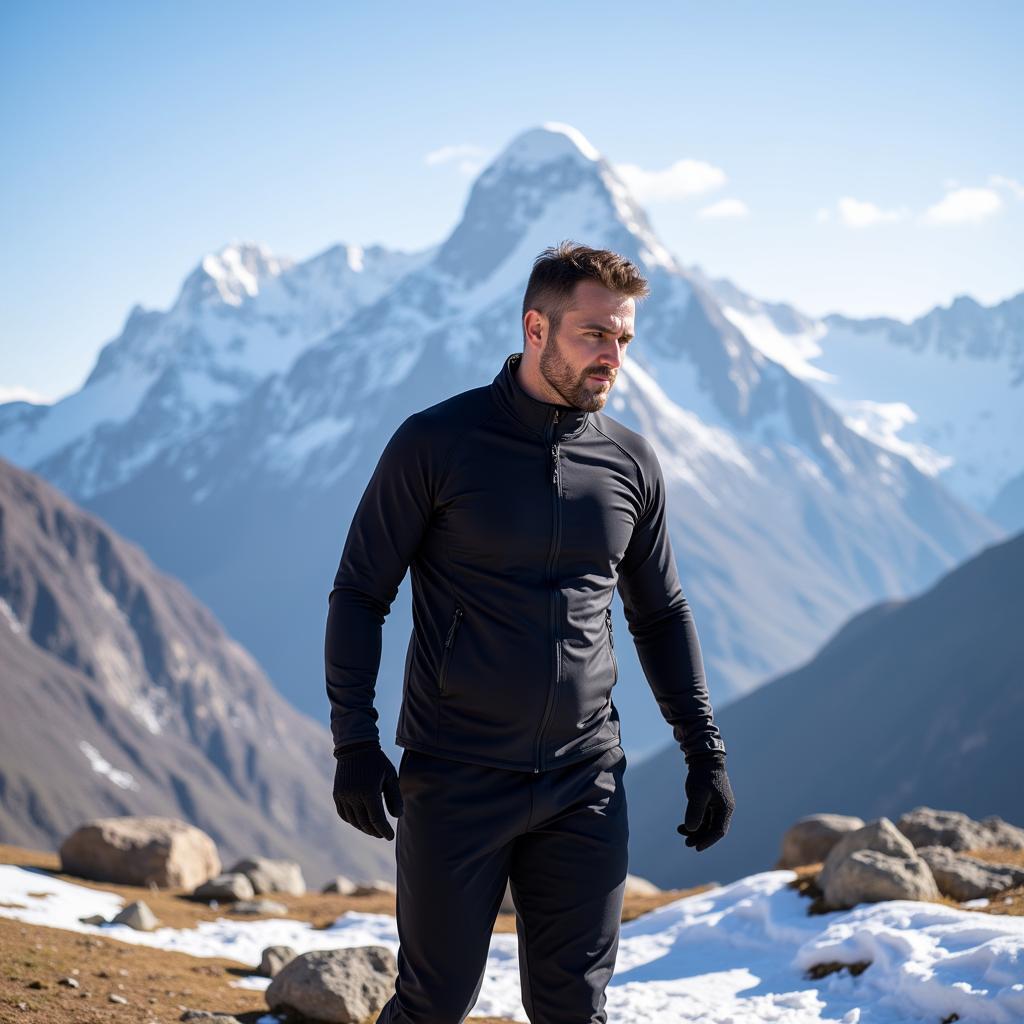Winter in Pakistan can be a beautiful time of year, but it can also be bitterly cold, especially in the northern regions. If you’re planning on spending any time outdoors during the winter months, it’s essential to have the right clothing to keep you warm and comfortable. That’s where thermal suits come in. A good thermal suit can make all the difference, providing an extra layer of insulation to trap heat and keep out the cold.
This guide will walk you through everything you need to know about choosing the perfect thermal suit for your winter adventures in Pakistan, from understanding the different types of fabrics to finding the right fit for your body type.
Understanding Thermal Wear: Why It’s Essential for Pakistani Winters
Before we delve into the specifics of thermal suits, let’s take a moment to understand why thermal wear is so crucial for Pakistani winters. Unlike warmer climates, where a simple jacket might suffice, Pakistan’s winters demand an extra layer of protection. Thermal wear is designed to be worn as a base layer, directly against your skin. It works by trapping your body heat and creating an insulating barrier between you and the cold. This helps you stay warm even in sub-zero temperatures.
Choosing the Right Fabric: A Breakdown of Thermal Suit Materials
The key to a good thermal suit lies in its fabric. Different materials offer varying degrees of warmth, breathability, and moisture-wicking capabilities. Here’s a breakdown of the most common fabrics used in thermal suits:
- Merino Wool: Known for its exceptional warmth and softness, merino wool is a natural fiber that excels at regulating body temperature. It’s also naturally odor-resistant, making it a great choice for extended wear.
- Synthetic Fabrics (Polyester, Nylon, Spandex): Synthetic fabrics are often blended to create thermal wear that is lightweight, durable, and moisture-wicking. They dry quickly, making them ideal for active pursuits or sweaty conditions.
- Silk: While not as warm as wool or synthetics, silk offers a luxurious feel and is surprisingly effective at regulating body temperature. It’s an excellent choice for those with sensitive skin.
- Cotton: While cotton is comfortable for everyday wear, it’s not the ideal choice for thermal wear. Cotton absorbs moisture and takes a long time to dry, which can leave you feeling cold and damp.
Pro Tip from Ahsan Khan, Outdoor Gear Specialist: “When choosing a thermal suit for Pakistan’s winters, prioritize warmth and moisture-wicking capabilities. Look for blends that combine the best of natural and synthetic fibers for optimal performance.”
 Types of Thermal Suit Fabrics
Types of Thermal Suit Fabrics
Finding the Perfect Fit: Ensuring Comfort and Mobility
A well-fitting thermal suit should feel snug but not restrictive. It should allow for a full range of motion without bunching or riding up. Here are some things to keep in mind when considering the fit of your thermal suit:
- Base Layer Fit: The base layer, which includes your thermal top and bottoms, should fit snugly against your skin without feeling too tight.
- Mid-Layer Fit: If you plan on layering, ensure your mid-layer (like a fleece jacket) fits comfortably over your base layer.
- Outer Layer Fit: Your outer layer, such as a winter coat, should be loose enough to accommodate your base and mid-layers without restricting movement.
Thermal Suit Features to Consider for Pakistani Winters
Beyond fabric and fit, several other features can enhance your thermal suit’s performance in Pakistani winters. Consider these factors when making your choice:
- Wind Resistance: Look for thermal suits with wind-resistant outer layers to protect you from chilly winds, especially in mountainous regions.
- Water Resistance: While not essential for all situations, a water-resistant or waterproof outer layer can be beneficial if you encounter snow or light rain.
- Zippered Vents: Vents allow you to regulate your body temperature by releasing excess heat, preventing overheating during strenuous activities.
- Pockets: Pockets provide convenient storage for essentials like your phone, keys, or a compass.
Top Thermal Suit Recommendations for Your Winter Adventures in Pakistan
Now that you understand the key factors to consider, let’s explore some highly-rated thermal suit options available in Pakistan:
- [Brand Name] Merino Wool Base Layer Set: This set is perfect for those seeking ultimate warmth and comfort.
- [Brand Name] Performance Fleece Thermal Set: Ideal for active individuals, this set offers excellent breathability and moisture-wicking properties.
- [Brand Name] Windproof and Water-Resistant Thermal Suit: This suit is designed to withstand harsh winter conditions, making it suitable for trekking and mountaineering.
 Man Hiking in Thermal Suit
Man Hiking in Thermal Suit
Caring for Your Thermal Suit: Tips for Longevity
To ensure your thermal suit lasts for many winters to come, proper care is essential. Here are some helpful tips:
- Follow Care Instructions: Always refer to the care label on your thermal suit for specific washing and drying instructions.
- Wash Inside Out: Washing your thermal suit inside out helps protect the fabric and any delicate finishes.
- Use Mild Detergent: Opt for a mild detergent specifically designed for delicate fabrics.
- Avoid Fabric Softeners: Fabric softeners can coat the fibers of your thermal wear, reducing its effectiveness.
- Air Dry Whenever Possible: Hang your thermal suit to air dry, preferably out of direct sunlight.
Conclusion: Staying Warm and Enjoying Winter in Pakistan
Investing in a high-quality thermal suit is essential for anyone looking to brave the chilly embrace of winter in Pakistan. By understanding the different fabrics, fits, and features, you can choose the perfect suit to keep you warm, comfortable, and ready to embrace all that the season has to offer. So, gear up, stay warm, and make the most of your winter adventures in Pakistan!
FAQs About Thermal Suits for Winter in Pakistan
1. Can I wear thermal suits under my regular clothes?
Yes, thermal suits are designed to be worn as a base layer under your regular clothing. They are thin and form-fitting, making them ideal for layering.
2. How do I choose the right size thermal suit?
Refer to the brand’s sizing chart and consider your body measurements. It’s generally better to choose a snug fit rather than a loose one.
3. Can I wear thermal suits for activities other than outdoor adventures?
Absolutely! Thermal suits are versatile and can be worn for a variety of activities, such as skiing, snowboarding, hiking, camping, or simply staying warm indoors during the colder months.
4. How do I wash and care for my thermal suit?
Follow the care instructions on your thermal suit’s label. Generally, it’s best to wash them in cold water with a mild detergent and air dry them.
5. Where can I buy thermal suits in Pakistan?
Thermal suits are readily available at sporting goods stores, department stores, and online retailers across Pakistan.
6. What is the price range for thermal suits in Pakistan?
The price of thermal suits in Pakistan varies depending on the brand, material, and features. You can find options ranging from affordable to high-end.
7. Are there thermal suits specifically designed for women and children?
Yes, many brands offer thermal suits specifically tailored to the needs of women and children, with features like a comfortable fit and fun designs.
For further assistance in choosing the perfect thermal suit for your needs, feel free to contact us.
Contact Us:
Phone: +923337849799
Email: [email protected]
Address: Dera Ghazi Khan Rd, Rakhni, Barkhan, Balochistan, Pakistan.
Our dedicated customer support team is available 24/7 to assist you. You might also find helpful information in our articles about iPhone XS Max Price Pakistan or iPhone XS Pakistan Price. We strive to provide comprehensive resources for all your needs.